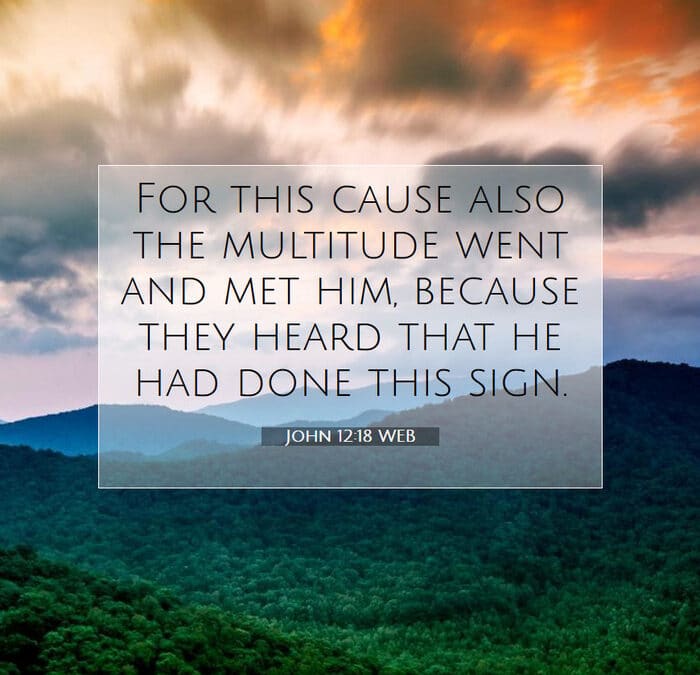In John 12, there were multitudes of people who had traveled to Jerusalem, along with residents from within, who were flocking to see Jesus. However, the motive was not worship, nor was it based on the truth of what Jesus taught or what was written of him in the OT. Instead, there was a fascination in the One who had power over death, instead of praising him for his ministry of humility that would lead to his crucifixion to deal with mankind’s sin problem. However, if people think their greatest problem is something else, perhaps physical illness or even physical death, then their worship of Christ will be misaligned and insincere.
It’s undeniable that human beings are increasingly obsessed with preventing death, so to have any prospect of that happening creates mass hysteria. For example, how many fads have come on the scene even in the 21st century that promote some idea of extending life. The masses desperately rush to purchase the product or sign up for the new program and then after a little while, it just fades away and what was touted as a savior of the human race is long forgotten. The author of Hebrews sheds some insight about what is behind this in Heb. 2:14 Therefore, since the children share in flesh and blood, He Himself likewise also partook of the same, that through death He might render powerless him who had the power of death, that is, the devil, 15 and might free those who through fear of death were subject to slavery all their lives. In this text, we have the underlying problem as it relates to death and the solutions. The fear of death produces a slavery that consists of worrying about death or trying to prevent it. This certainly was readily apparent in our recent Covid-19 era. What’s the solution?—The freedom that Jesus brings, which is not freedom from physical death, but freedom from the bondage to fear it. These throngs of people in John 12 were certainly enthusiastic about Jesus, but not because of what Jesus was about to do in his death, but because of the power he exhibited over physical death. We should worship him instead for what he eternally provides for us–himself.

